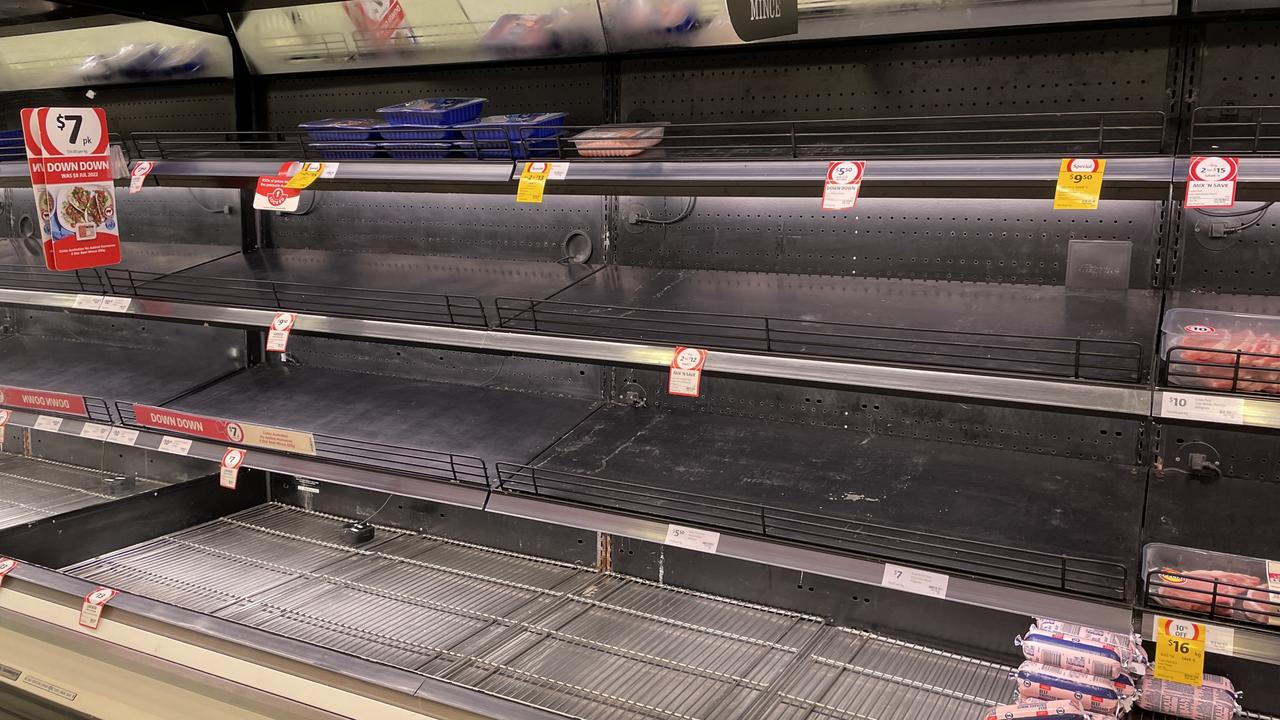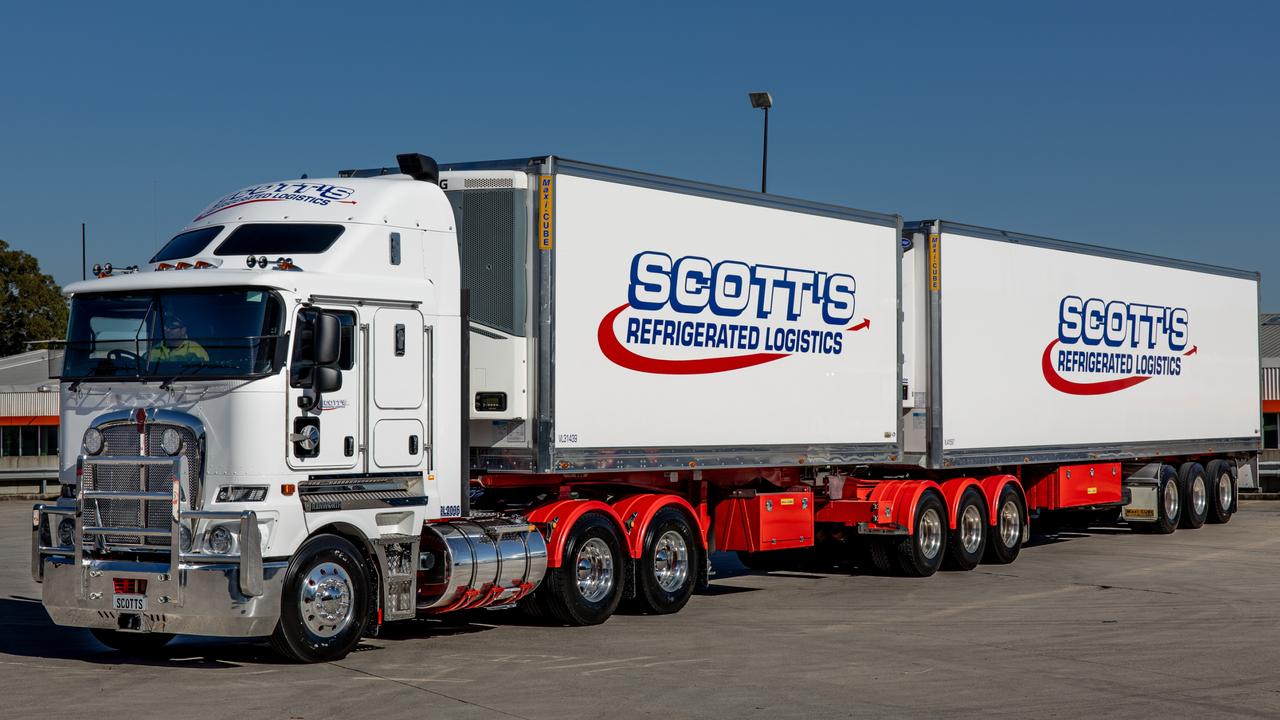Receivers of collapsed trucking giant admit ‘continuity of food supply’ can’t be guaranteed
Food supplies to Australia’s biggest supermarkets can’t be guaranteed after the shock collapse of one of our biggest trucking firms.
Food supplies to Australia’s biggest supermarkets can no longer be guaranteed after the shock collapse of one of the county’s biggest trucking firms.
News broke late last month that Scott’s Refrigerated Logistics – one of Australia’s biggest trucking firms, which services major supermarkets, including Coles, IGA and Aldi – had been plunged into receivership.
Scott’s was reportedly bought by private equity firm Anchorage Capital Partners in June 2020 for about $75 million.

KordaMentha was appointed as receivers and was initially optimistic it would find a “new long-term owner”.
However, after being unable to find a buyer – reportedly due to fears over the company’s debt levels – staff were told they were being made redundant and the firm would enter liquidation, with 1500 jobs lost and the firm’s 500 trucks and more than 1000 trailers set to be sold.
KordaMentha partner Scott Langdon told news.com.au the receivers had “no confidence” of a smooth wind down, and that groceries supplies could not be guaranteed.
“We have commenced the process of winding down the Scott’s operation, however, due to the financial situation of Scott’s, there is a genuine risk of an uncontrolled wind down, and as a consequence, we cannot guarantee the services available to provide customers and ultimately get the end products onto the retail shelf,” he said.
“We have no confidence in the current situation that it will be an orderly wind down.”
Winding up is a process where a company’s outstanding matters are finalised, its assets liquidated, and it ceases to exist as a company.
It is understood that small to medium operators and food manufacturers will likely be the hardest hit and that the wind down is expected to be imminent, with the company’s dire financial situation meaning the continuity of service was under threat.
No government financial support has been given, leaving the interests of employees, customers and end users up in the air.
Mr Langdon’s comments come after he told The Australian Financial Review over the weekend that the receivers “cannot provide customers and the public with an assurance that there will not be any disruption to services provided by Scott’s and the continuity of food supply”.

Scott’s has either direct or indirect ties to Australia’s biggest grocery chains, including Coles, with a Coles spokesman telling news.com.au in a statement the company was working hard to reduce disruption to customers.
“Our focus remains on continued availability of refrigerated products in stores and online for customers,” the statement reads.
“We are working quickly to transition to our other transport partners and are closely monitoring deliveries across our supply chain.
“We are working hard to minimise disruption for customers and our farmers and suppliers as deliveries ramp up.”
It is understood Coles began making contingency plans last week as it became clear that Scott’s faced serious operational challenges, which has allowed the firm to find other logistics providers to fill the gap.
Aldi recently told news.com.au that its supermarket supply chains “rely on many interdependent partnerships”, and that despite the challenges presented by the Scott’s collapse, “we are working with our suppliers and logistics partners to minimise impact to ALDI customers”.
While Scott’s doesn’t deliver products for Woolworths, it did deliver to Woolworths’ distribution centres on behalf of some suppliers.
IGA’s parent company Metcash also does not hold any transport contracts with Scott’s Refrigerated Logistics, however, the trucking firm did provide transport services to some of IGA’s suppliers of perishable goods.
However, industry insiders have sounded the alarm over a major crisis engulfing the logistics industry, warning that the Scott’s collapse will likely be the first of many.
“It’s symptomatic of what’s been happening in the freight industry, and this won’t be the last,”

Road Freight NSW CEO Simon O’Hara recently told news.com.au of the Scott’s saga.
“It’s the tip of the iceberg and we’re going to see more, and unfortunately we will see the supply chain affected undoubtedly, given the shortage of new trucks coming into Australia.”
That claim was echoed by the Transport Workers Union’s national secretary Michael Kaine, who said customers would ultimately pay the price for the growing crisis.
“Scott’s Refrigerated Logistics is a major casualty of an industry-wide crisis that’s pushing operators and drivers to the brink, which will have an enormous impact on our essential grocery supply chains,” he said.
Scott’s has been particularly hard hit by recent extreme weather events, the Covid pandemic and skyrocketing costs – major issues that have been hammering the entire sector for several years now, leading to a looming exodus of companies from the market, either voluntarily or involuntarily.






